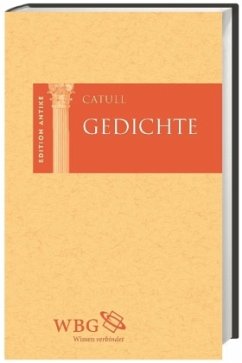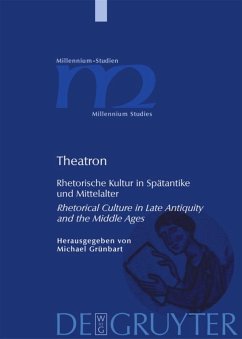
Catulls Epigramme im Kontext hellenistischer Dichtung

PAYBACK Punkte
0 °P sammeln!
The Roman poet Catullus is regarded as the founder of private love poetry. As a member of the group of poets known as â??Neotericsâ? he had a particular influence on the literary life of Rome in the first century BC. To date, however, insufficient attention has been paid to his shortest poems, the epigrams, and neither their artistry hasbeen adequately appreciated, norhow much they owe to Hellenistic poetry. This is now demonstrated for all 48 of Catullusâ?? epigrams using methods of modern literary scholarship.
Die Epigramme bilden das dritte große Teilstück des überlieferten Werks des C. Valerius Catullus. Während diese Epigramme in der Forschung bislang eher stiefmütterlich behandelt und oft als wenig kunstvoll angesehen wurden, ist es nun mittels intertextualitätstheoretischer Methodik gelungen, nachzuweisen, wie stark sie sich am kallimacheischen Kunstideal orientieren.
Die gestalterischen Prinzipien hellenistischer Dichtung sind in Catulls Epigrammen durchgehend präsent, und diese Erkenntnis liefert nicht nur zahlreiche neue Interpretationsansätze, sondern verrät auch viel über die sozialen Strukturen, in die Catull innerhalb der Dichtergruppe der "Neoteriker" eingebunden war.
Die gestalterischen Prinzipien hellenistischer Dichtung sind in Catulls Epigrammen durchgehend präsent, und diese Erkenntnis liefert nicht nur zahlreiche neue Interpretationsansätze, sondern verrät auch viel über die sozialen Strukturen, in die Catull innerhalb der Dichtergruppe der "Neoteriker" eingebunden war.













